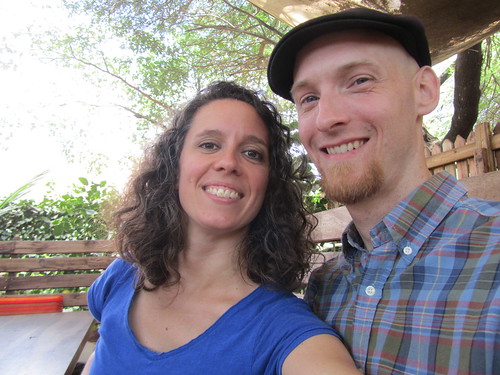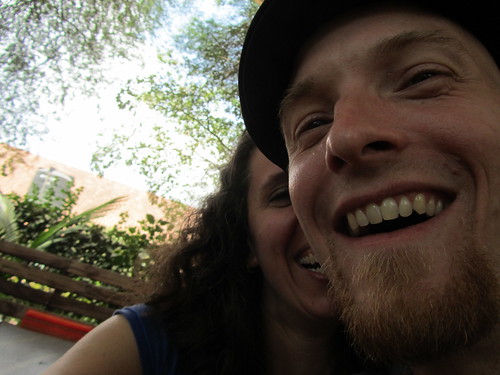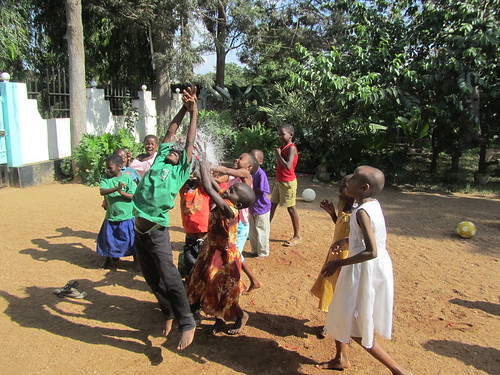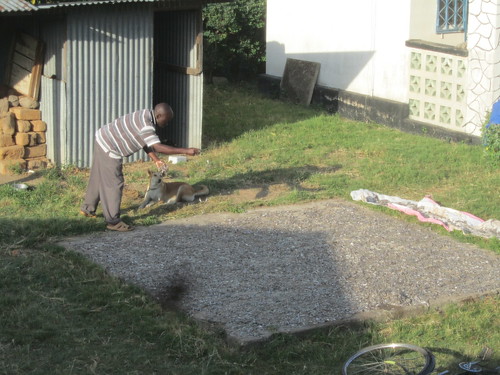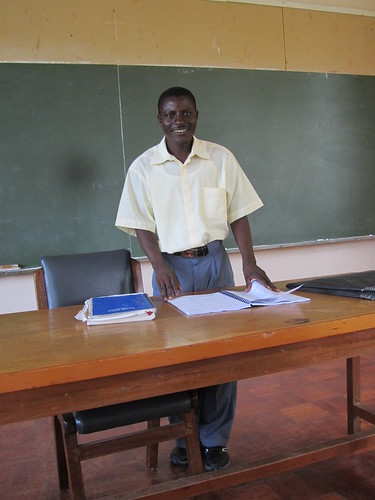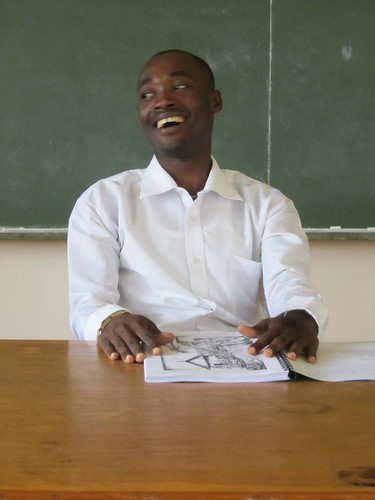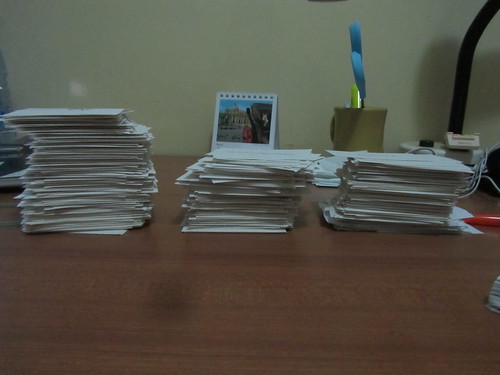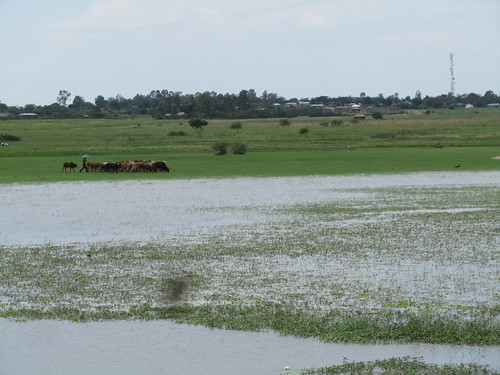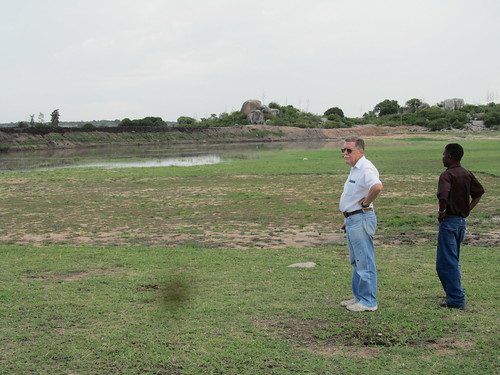
Words cannot describe the experience of visiting this place. For sure, it's a really tough place to live. Mike offhandedly mentioned that the water pipes had been broken and they'd been without water all week*. There is little privacy because all 70+ people (plus chickens, ducks, cats) share a compound. It's dusty and hot and the accommodations are spartan, at best. And the stories of how people ended up here are heart-wrenching.

Fr. Mike gives a tour of the compound and the dispensary, which is open to residents of the home as well as people from the surrounding remote village.
But at the same time, it's a beautiful place with smiling faces and a lively spirit. There are few places I've been where I can say I actually "felt" the presence of God, but this was surely one of them. Fr. Mike exudes such a lively spirit, flitting around, picking up kids, kissing them on the cheeks, making rapid-fire jokes in Swahili. The residents play music all day so the courtyard is filled with the sounds of song. And people sit or mill about the courtyard, sometimes singing, sometimes dancing, sometimes chatting with friends. The kids are passed around from resident to resident, everyone taking a hand at helping one another.
It was such an amazing experience!

The kids don't get much affection because many of them are without parents, so we took turns carrying or holding hands with the kids.
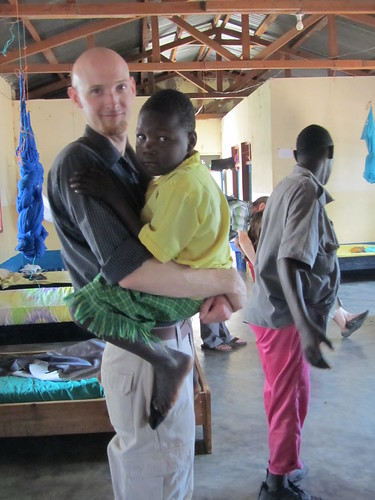
They think this boy is 12 or 13 years old. He doesn't speak.

A windmill pumps water from Lake Victoria to the compound.

David shows a man, named "Baba Yo" (because those are the only words he can say), how to work his camera. Baba Yo LOVED taking pictures and took any opportunity to do so. He wasn't too bad either! In the background Caitlin and I tickle a little girl.

One of our guests from America talks to a resident. This woman is blind and crippled. She crawls on the floor to get anywhere.
The people were trilled that we had come out to visit them. Visitors in Tanzania are considered a blessing, and certainly there are few visitors that come out to the Charity Home. But, honestly, I feel like I was the one who received the blessings yesterday. Any difficulties that I may encounter in life vastly pales in comparison to anything these folks have experienced. And yet, they see the blessings in their life and are grateful.
It was truly an amazing day.
Our fellow MKLMers wrote a blog post about the day too and posted some pictures. Feel free to visit their site to read about their thoughts on the visit.
*It's quite common for people to cut pipes to either steal water or the pipe itself.
